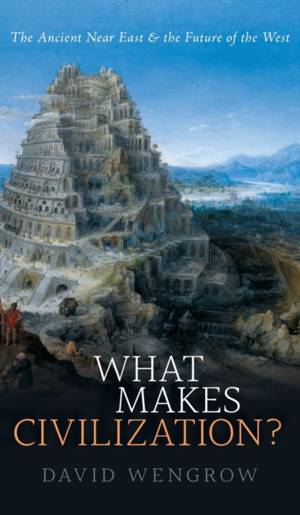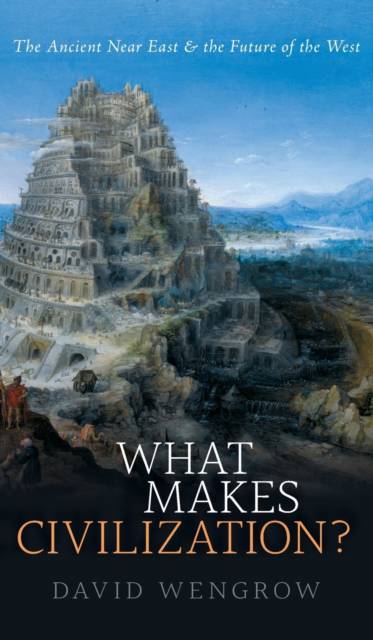
- Retrait gratuit dans votre magasin Club
- 7.000.000 titres dans notre catalogue
- Payer en toute sécurité
- Toujours un magasin près de chez vous
- Retrait gratuit dans votre magasin Club
- 7.000.0000 titres dans notre catalogue
- Payer en toute sécurité
- Toujours un magasin près de chez vous
What Makes Civilization?
The Ancient Near East and the Future of the West
David Wengrow
Livre relié | Anglais
20,95 €
+ 41 points
Description
The targeted destruction of ancient sites and monuments in the Middle East provokes widespread outrage in the West. But what is our connection to the ancient Near East? In this updated edition of What Makes Civilization? archaeologist David Wengrow investigates the origins of farming, writing, and cities in ancient Mesopotamia (Iraq) and Egypt, and explores the connections between these two civilizations. It is the story of how people first created kingdoms and monuments to the gods and, just as importantly, how they pioneered everyday practices that we might now take for granted, such as familiar ways of cooking food and keeping the house and body clean. Wengrow asks why these ancient cultures, where so many features of modern life originated, have come to symbolize the remote and the exotic. Today, perhaps more than ever, he argues, the beleaguered cultural heritage of ancient Egypt and Mesopotamia stands as a warning for the future. A warning of the sacrifices people will tolerate to preserve their chosen form of life; of the potential for unfettered expansion that exists within any cultural tradition; and of blood perhaps yet to be spilled, on the altar of a misguided notion of civilization.
Spécifications
Parties prenantes
- Auteur(s) :
- Editeur:
Contenu
- Nombre de pages :
- 240
- Langue:
- Anglais
Caractéristiques
- EAN:
- 9780199699421
- Date de parution :
- 01-04-18
- Format:
- Livre relié
- Format numérique:
- Genaaid
- Dimensions :
- 132 mm x 196 mm
- Poids :
- 272 g

Les avis
Nous publions uniquement les avis qui respectent les conditions requises. Consultez nos conditions pour les avis.






